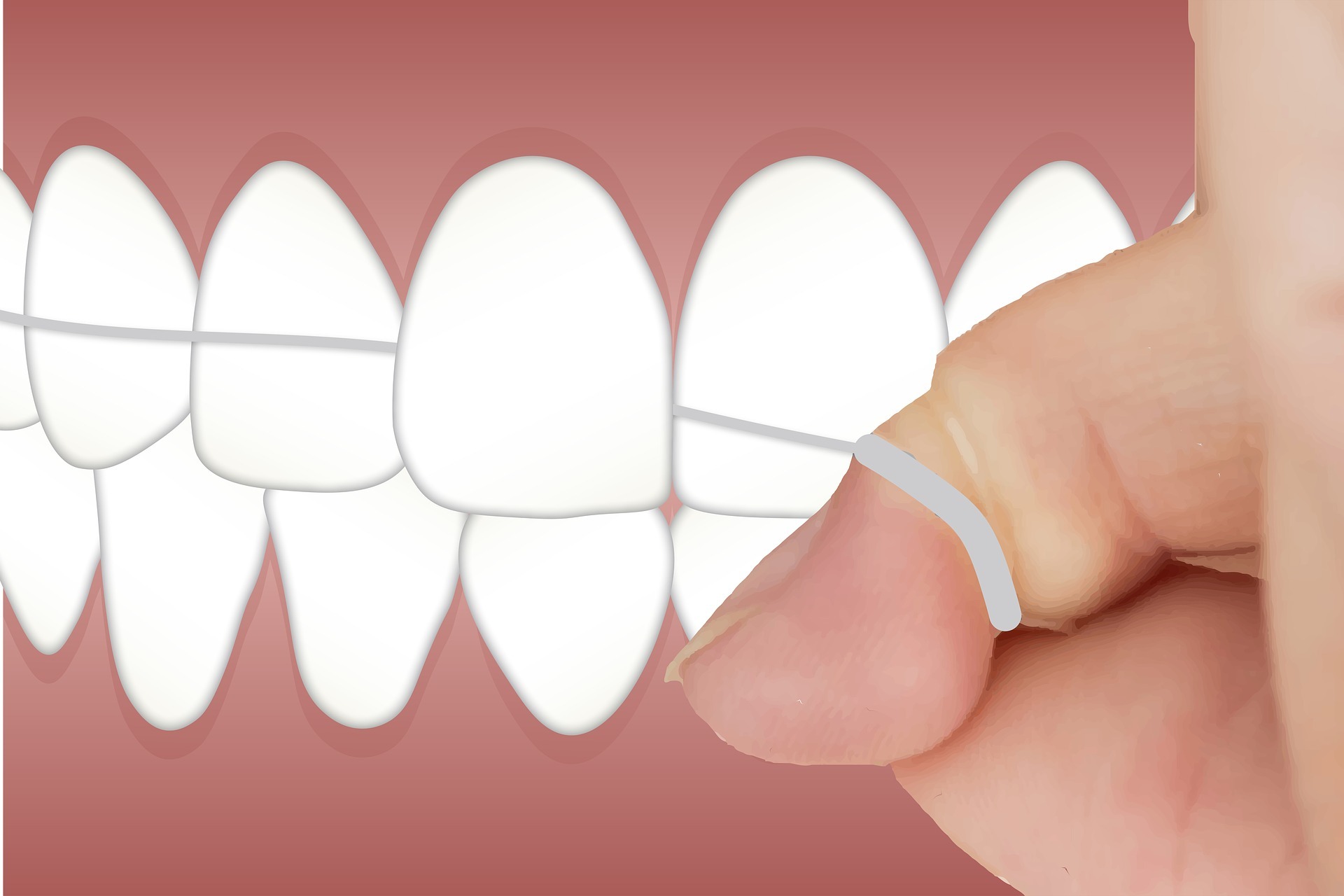Are Permanent Teeth Replacements Worth It?

Whether you lost a tooth due to trauma, decay, or a long-term dental complication, the prospect of restoring both function and aesthetics through a robust, enduring solution appeals to many. Yet, taking this path calls for thoughtful consideration of options, costs, long-term benefits, and personal goals. While modern treatments promise a near-natural appearance and improved biting efficiency, there is no universal approach that applies equally to everyone. Instead, the question “Are permanent teeth replacements worth it?” often leads to a deeper exploration of how they fit into an individual’s lifestyle, expectations, and oral health status.
For those living in London, the pursuit of high-quality dental solutions is no small matter. Dentists across the city, including some of the country’s leading cosmetic experts, are well-versed in modern procedures that give patients strong, permanent alternatives to traditional dentures or bridges. With these treatments comes the assurance of a smile that is not only visually attractive but also functional in daily life. In fact, the quest for a long-term, stable solution drives many people to consider permanent teeth replacements as their preferred treatment path.
According to Marylebone Smile Clinic and their cosmetic dentist Dr. Sahil Patel, the growing popularity of permanent teeth replacements with dental implants in London is a testament to their reliability and transformative power. “Patients frequently come to me concerned about losing confidence in their smile after tooth loss,” he explains. “When we restore missing teeth with permanent solutions, we help them regain that confidence, enhance their quality of life, and improve overall oral health. It is a choice that pays dividends in both function and aesthetics, but patients must be well-informed of the procedure, healing process, and ongoing care requirements.”
Dr. Patel’s insight highlights the principle that successful permanent teeth replacements demand more than just the clinical procedure. They also require patient education, lifestyle adjustments, and diligent aftercare. Considering the significance of this investment—both financially and in terms of personal well-being—many prospective patients naturally wish to know the facts before making a decision.
Permanent Teeth Replacements
Permanent teeth replacements, in general, refer to various methods of replacing missing or severely compromised natural teeth with solutions intended to last for an extended period—often many years or even a lifetime. While dentures and bridges are sometimes considered more traditional, these are generally not classified as “permanent” since they may be removable or require replacements over shorter intervals. By contrast, dental implants, implant-supported bridges, and implant-supported dentures typically fall under the “permanent” umbrella because they anchor securely into the jaw, mirroring the structure of a natural tooth root. This integration can result in a stable, long-lasting solution that provides a closer approximation to natural tooth functionality and appearance.
The success of such treatments typically rests on the integrity of the patient’s oral health, the skills of the dental professional, and the quality of materials used. With appropriate planning, precise placement, and diligent care, permanent replacements have an excellent track record for durability. The rising demand for these solutions in London reflects not only the city’s status as a centre of medical and dental expertise but also the general population’s desire for top-tier treatments. Patients often weigh the advantages of a permanent fix against more short-term alternatives, leading many to opt for the predictability and longevity of modern implant-based procedures.
Exploring the Various Implant-Based Options
In the conversation surrounding permanent teeth replacements, dental implants emerge as the most frequently cited option. An implant typically consists of a titanium post (or another biocompatible material) inserted into the jawbone. After a healing period, this post fuses with the bone in a process known as osseointegration. Following that, a prosthetic tooth is attached to the implant post via an abutment. The result is a replacement that looks, feels, and functions similarly to a natural tooth.
Several variations on this theme exist. For instance, multiple missing teeth can be addressed using implant-supported bridges, while patients who have lost most or all of their teeth might consider implant-supported dentures. The final choice frequently hinges on the number of missing teeth, the health of the jawbone, and personal preference regarding cost and aesthetic expectations. Although the London dental implant scene is renowned for both advanced technology and expertise, it remains crucial for patients to choose the right clinic and procedure based on a thorough consultation and assessment of their individual needs.
Another aspect influencing choice is whether to opt for immediate placement or to follow a more staged process. Some treatments allow for a new tooth to be placed quickly, while others require months for healing between implant placement and the attachment of the final crown or denture. The ideal approach depends on factors such as the overall health of the patient, the condition of existing jawbone, and the patient’s ability to adhere to the recommended aftercare routines.
Evaluating the Costs and Returns
The cost associated with permanent teeth replacements is often a source of concern for those considering treatment. Compared with conventional dentures or bridges, dental implants can represent a more significant up-front expense. This includes costs related to consultations, scans and X-rays, the surgical procedure itself, post-operative appointments, and the prosthetic components. While implant dentistry can be perceived as costly, many patients consider it an investment that provides lifelong benefits—both from a health perspective and in terms of self-confidence.
For instance, an implant can help preserve bone mass in the jaw. When a tooth is lost, the surrounding bone may gradually resorb without the stimulation offered by a tooth root. An implant can mitigate this resorption, thus maintaining a healthier and more stable jaw structure over time. Additionally, patients often report improved comfort and freedom compared to removable dentures, which can shift out of place or cause irritation. This enhanced stability, coupled with the confidence gained from having a natural-looking smile, is often enough to justify the initial expense for many individuals.
There are several pathways to address financing when it comes to permanent teeth replacements. Some dental practices offer in-house payment plans or partner with external financing providers that allow patients to spread the cost over a period. Insurance coverage might offset some of the costs, although the extent of coverage varies greatly depending on each policy. Whatever the chosen route, it is prudent for prospective patients to plan ahead and speak with their dentist about the total cost, potential supplementary fees, and any relevant insurance issues. In a city as diverse as London, a plethora of clinics cater to different budgets, but the emphasis should always remain on a high standard of care.
Comparing Alternatives to Implants
Choosing whether to invest in permanent teeth replacements often involves weighing their benefits against the shorter-term approach of traditional solutions. One common alternative is the standard dental bridge. A bridge typically relies on the support of adjacent natural teeth, which must be reshaped or altered to accommodate the bridge structure. This can compromise the integrity of otherwise healthy teeth and might necessitate replacement or further dental work in the future. While a bridge can be an excellent option for some, it might not offer the bone-preserving advantages of dental implants or the same level of stability and realism.
Dentures—both partial and full—are another known alternative. Traditional dentures tend to be more cost-effective initially, and they can be made relatively quickly, making them an appealing solution for individuals who need replacement teeth in a hurry or who lack the jawbone density required for implants. That said, conventional dentures may need refitting over time as the shape of the jaw changes, and some patients encounter difficulties with stability, causing discomfort or problems while eating and speaking. Implant-supported dentures offer a middle ground, combining aspects of both dentures and implants. They provide a more stable foundation for the denture while using fewer implants to anchor the prosthetic compared to a full set of individual implants.
For those considering implants, it is generally agreed that the long-term gains, such as improved chewing ability, bone health, and confidence, form a compelling argument in their favour. Yet, not everyone qualifies as a suitable candidate for implant surgery; factors like severe gum disease, insufficient jawbone mass, or certain health conditions might affect eligibility. For that reason, it is crucial to undergo a comprehensive examination and consult with an experienced dentist who can lay out all available options.
Impact on Oral Health and Overall Well-Being
Another angle to consider when determining the worth of permanent teeth replacements lies in the realm of oral and general health. When a tooth is missing, gaps in the mouth can invite a host of complications: the remaining teeth may shift or tilt, altering the bite and potentially leading to problems with the jaw joint or increased susceptibility to tooth decay. Additionally, spaces in the mouth can cause changes in speech or chewing patterns, leading some individuals to avoid certain foods or to lose confidence when speaking in social situations.
Beyond these immediate concerns, the integration of an implant can also help preserve facial structure. The jawbone’s contour is, in large part, maintained by the presence of tooth roots or implant posts. As bone mass depletes with a missing tooth, the lower portion of the face may start to appear “sunken” or prematurely aged. This phenomenon can be more pronounced when multiple teeth are missing. In such cases, implant-supported solutions play a vital role in supporting the facial structure. This benefit not only has aesthetic implications but can also contribute to overall health by ensuring proper jaw alignment and function.
The replacement of missing teeth is therefore not solely about vanity or cosmetic enhancements—though the aesthetic improvements are certainly noteworthy. It also concerns health, longevity, and quality of life. The collaborative approach of modern dentistry means that a skilled dentist, periodontist, or oral surgeon can formulate a treatment plan precisely tailored to each patient. By mapping out the individual’s existing oral health status, bone density, and personal goals, a suitable course of action can be established. Although the journey might be longer than that of receiving a traditional denture or bridge, many patients find the lasting benefits of an implant-based replacement highly rewarding.
Longevity and Maintenance
There is a common misconception that once an implant has been placed, maintenance becomes minimal. In truth, though the implant itself is built to be durable, it is crucial to continue exercising good oral hygiene and to attend regular check-ups. Implants can be subject to gum inflammation and infection if not properly cared for. Peri-implantitis, an infection that affects the tissue around the implant, can lead to complications and even implant failure in severe cases.
A daily regimen of thorough brushing, flossing (or using interdental brushes), and using recommended antiseptic mouth rinses is the cornerstone of implant upkeep. Regular professional cleanings and examinations ensure that any issues are promptly detected and addressed. If the gum tissue around the implant remains healthy and stable, the implant can feasibly last for decades. The prosthetic portion (the crown, bridge, or denture) may require occasional adjustments or even replacement over time, but these tend to be minor procedures, especially if performed at the early sign of wear or damage.
For individuals willing to commit to preserving their smile and overall oral health, the maintenance burden is comparable to that of natural teeth. Should an implant eventually fail—a rare occurrence when performed under optimal conditions—patients can often explore a new implant placement, provided the underlying bone remains sufficient and healthy. An honest conversation with a trusted dentist can help patients prepare for these possibilities and understand the best steps to ensure long-term success.
Psychological and Emotional Benefits
An often overlooked yet critical component of permanent teeth replacements is the positive impact on mental well-being and self-esteem. Losing a tooth or multiple teeth can be traumatic and may result in embarrassment or reluctance to smile, talk, or socialise freely. This reluctance can sometimes lead to isolation or self-consciousness, with effects that reach beyond oral health.
When a permanent replacement is in place, individuals often experience a marked improvement in self-confidence. They may be more willing to engage socially, speak in public, or enjoy a varied diet without fear of dislodging a denture. These changes can have a ripple effect on multiple areas of life, from personal relationships to professional opportunities. Moreover, the stability of an implant often restores a sense of normalcy that can be lost when a gap in the mouth constantly serves as a reminder of previous discomfort or health issues.
Still, deciding whether to pursue a permanent replacement must be informed by realistic expectations and thorough information. While the potential psychological benefits are compelling, the procedure can require a commitment of time, resources, and patience during recovery. Some discomfort is to be expected in the days following implant surgery, and the process may be spread out over months. Patients are well-served by understanding this journey before they commit to it, as the best outcomes typically arise when there is a clear understanding and acceptance of the necessary steps.
Why the Procedure Appeals to Many Londoners
London is a global hub known for its dynamic lifestyle, diverse population, and emphasis on high-quality healthcare. For individuals seeking the best possible outcome for their smile, this city houses clinics that employ cutting-edge technology and highly skilled professionals. The reputation of London dental implant providers has spread far and wide, drawing patients who value advanced care and predictable results.
Additionally, living in a metropolis can place demands on one’s image and self-assurance. From important business meetings to social events, a confident smile can be an asset in professional and personal interactions. Londoners, who are often on the go, may also appreciate the practical benefits of permanent teeth replacements, which reduce the worry about shifting dentures or the inconvenience of adhesives. Indeed, the value placed on efficiency and reliability intersects perfectly with the promise of stable, long-term restoration offered by implant-based solutions.
Although the city provides a wide array of options, not all dental clinics are equal. Prospective patients should take the time to research practitioners, read testimonials, and schedule consultations before deciding. Sometimes, a second or third opinion can shed light on different possible routes to the same goal. Feeling comfortable and informed is a key factor in ensuring the best possible experience from start to finish.
Balancing Risks and Rewards
All medical and dental interventions carry some degree of risk, and implant procedures are no exception. Possible complications include infection, nerve damage, or issues related to the implant’s fusion with the bone. Nevertheless, these risks are relatively rare and can be mitigated by choosing an experienced and qualified dental team. The careful use of diagnostic imaging, digital planning, and robust sterile protocols significantly increases the likelihood of a successful outcome.
The rewards, as previously outlined, can be life-changing. Many patients who undergo implant treatment find that it revolutionises their eating habits, allowing them to enjoy foods that had become challenging or off-limits. Others note the regained confidence in social situations, no longer preoccupied with the appearance or feel of their teeth. Consequently, the general consensus among those who have experienced successful implant therapy is that the procedure is indeed worth it, provided the patient is a suitable candidate and follows the recommended maintenance regime.
The Importance of a Personalised Consultation
Given that each patient’s mouth, bone density, and medical history is unique, a personalised consultation stands as an essential first step toward any permanent teeth replacement. During such an assessment, the dentist will examine the condition of the existing teeth, discuss possible treatments, and employ imaging techniques like X-rays or CT scans to determine the quality of the jawbone. If the bone is deficient, bone grafting might be necessary before an implant can be placed. Conversely, if bone quality is favourable, immediate placement could be an option.
At this stage, it is also vital to discuss budget, lifestyle factors, and the patient’s expectations regarding aesthetics and functionality. A trustworthy dentist will outline realistic outcomes and clarify potential timelines. Depending on the complexity of the case, a referral to a specialist or a multidisciplinary team could be the ideal approach, particularly if the patient has underlying health issues or advanced periodontal disease. By ensuring a thorough investigation and planning process, the resulting permanent teeth replacement is far more likely to succeed, bringing satisfaction to the patient for many years to come.
Conclusion: The Real Worth of Permanent Teeth Replacements
The question “Are permanent teeth replacements worth it?” does not invite a simplistic answer. Instead, it demands consideration of multiple dimensions: the physical (oral health and function), the financial (cost and long-term value), and the emotional (self-esteem and overall quality of life). For many, dental implants and other implant-supported restorations represent a leap forward in dental technology that offers stable, long-lasting results. The ability to preserve jawbone, improve one’s smile, and live with fewer dietary or social restrictions underlines their appeal.
Nevertheless, choosing this path requires diligence in research, a thorough consultation, and the willingness to commit to proper maintenance. For Londoners in particular, the availability of skilled professionals, sophisticated facilities, and flexible financing options has made the pursuit of permanent teeth replacements more accessible than ever before. The city’s reputable London dental implant services, coupled with the expertise of leading cosmetic dentists, create a robust environment for optimal outcomes.
Ultimately, for those who meet the candidacy requirements, the rewards of permanent teeth replacements often justify the investment. The confidence to smile broadly, speak effortlessly, and partake in life’s many joys without apprehension can be transformative on both personal and professional levels. Indeed, for countless individuals who have taken the plunge, the answer to the question “Are permanent teeth replacements worth it?” is a resounding “yes”—a decision that can reshape not only a smile but one’s overall outlook on life.




